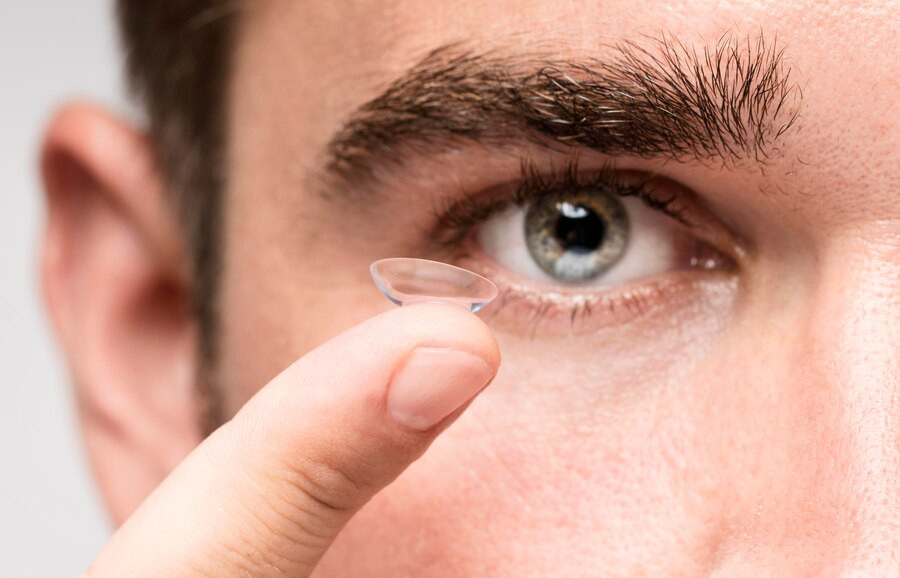Farsightedness, also known as hypermetropia, is a condition where close objects appear blurry, and it is more commonly seen in adults, especially as they age.
Farsightedness occurs due to refractive errors, where light falls behind the retina instead of directly on it. So, how can you treat farsightedness to achieve clearer vision? Read on for more information.
Signs of Farsightedness
The symptoms of farsightedness may not be immediately noticeable, especially if the condition is mild. However, farsightedness forces the eyes to work harder to focus, leading to various signs, including:
-
Blurred vision, particularly when viewing close objects
-
Blurred vision or eye fatigue at night
-
Difficulty reading or seeing small details up close
-
Double vision when reading, making it challenging to focus
-
A dull pain in the eyes due to the strain of focusing
-
Eye strain after prolonged reading or screen use
-
Frequent squinting to clarify writing or close objects
Effective Ways to Treat Farsightedness
Farsightedness, or hypermetropia, can be corrected using different methods, depending on its severity. Here are some common treatment options:
Glasses
Glasses are a simple and widely used solution for treating farsightedness. By using convex lenses, glasses help refocus light onto the retina, improving vision clarity.
Contact Lenses
Similar to glasses, contact lenses are another practical option for treating farsightedness. Since contact lenses rest directly on the eye's surface, they provide sharper and wider vision compared to glasses.
Contact lenses are particularly beneficial for active individuals, as they do not interfere with movement and are effective in correcting farsightedness.
Eye Surgery
If glasses or contact lenses are not ideal for you, surgical treatments may be considered, such as:
-
LASIK: This procedure reshapes the cornea so that light is focused correctly on the retina. LASIK is suitable for mild to moderate hypermetropia.
-
PRK (Photorefractive Keratectomy): Similar to LASIK but without creating a corneal flap. PRK may be an option for individuals who are not candidates for LASIK.
-
RLE (Refractive Lens Exchange): This procedure replaces the natural lens of the eye with an intraocular lens. RLE is often recommended for severe cases or for people over the age of 40, and it is similar to cataract surgery.
With the various treatment options available, you can select the most appropriate method to treat farsightedness based on your needs and condition. It is advised to consult with an eye doctor to receive the right recommendation.
If you have questions about farsightedness or other eye-related issues, you can use the consultation feature on the Ai Care app, available for download from the App Store or Play Store.
Looking for more information about other diseases? Click here!
- dr Hanifa Rahma
Mayo Clinic (2020). Farsightedness. Available from: https://www.mayoclinic.org/diseases-conditions/farsightedness/diagnosis-treatment/drc-20372499
Stephanie Booth (2024). How to Keep Your Eyes Healthy. Available from: https://www.webmd.com/eye-health/good-eyesight
Cleveland Clinic (2023). Hyperopia (Farsightedness). Available from: https://my.clevelandclinic.org/health/diseases/hyperopia-farsightedness
Kierstan Boyd (2024). What Is Photorefractive Keratectomy (PRK)?. Available from: https://www.aao.org/eye-health/treatments/photorefractive-keratectomy-prk
Cleveland Clinic (2023). Refractive Lens Exchange. Available from: https://my.clevelandclinic.org/health/treatments/24840-refractive-lens-exchange












